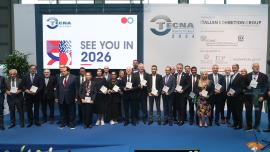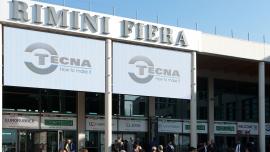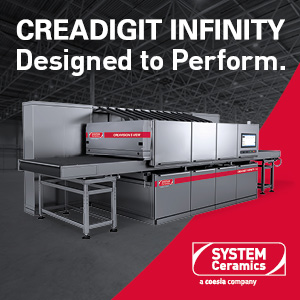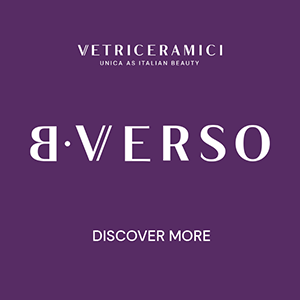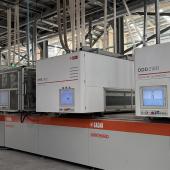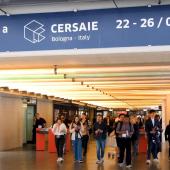Tecna People | Riccardo Galli, Innovation Manager Eurovetro
Courtesy of Tecna 2024: Tecna People – The voice of the exhibitors
|
Trends, markets and fair expectations: TECNA 2024’s exhibiting companies describe how, through technological innovation, they are responding to the new imperatives of sustainability at the center of European policies. The digitalisation of processes is another key issue that will have a disruptive impact on the future of industrial production. Tecna represents a prominent international showcase and a crucial moment of sharing to learn about the new frontiers of technological development. |

Riccardo Galli
Innovation Manager Eurovetro
Eurovetro produces recycled glass, which can be integrated as recycled raw material in the production of ceramic bodies and glazes.
What are the main market trends in terms of technology and which of these are you devoting most attention to?
The glass industry has long been committed to the ecological transition. Eurovetro specialises in the production of recycled glass, serving longstanding customers in the hollow and flat glass manufacturing sectors. These customers have been integrating significant quantities of recycled glass into their production processes since the post-World War II era. Furthermore, the glass packaging and container industry boasts a recycling rate consistently above 80%. This means that once recycled glass has been processed by companies such as Eurovetro, it becomes the most important raw material used in melting furnaces for new glass production. This practice effectively replaces the need for virgin raw materials such as sand, silica and carbonates.
We aim to replicate this successful model in the ceramic industry, expanding the field of application of techniques that are already adopted in the technical body and glaze sector. This will enable the ceramic industry to significantly increase the use of recycled raw materials in its processes, resulting in considerable CO2 savings and improving the industry’s environmental impact.
The experience of the glass industry demonstrates that this goal is also perfectly achievable in the ceramic sector. The quality and consistency guaranteed by companies such as Eurovetro plays a crucial role in converting recycled urban waste into high-performance products, enabling the glass industry to achieve significant savings in energy consumption and reductions in CO2 emissions.
As an example, we can consider the progress made in the industrial flat glass sector (glass sheets, windshields, glass for the building industry, etc.). In collaboration with Stazione Sperimentale del Vetro, Eurovetro conducted a feasibility study for the production of a special type of glass sand from processed sheet glass. This glass sand has characteristics that allow it to be fully and safely recycled, not just in the traditional flat and hollow glass sectors but also in the ceramic industry for the production of ceramic body and glazes. For this purpose, Eurovetro built an innovative plant devoted entirely to this product called Isomix®, which is covered by a European trademark and is already achieving significant results in the ceramic sector.
Which geographical area has been most active in recent months?
Our recycled products are mainly used for glass and ceramic applications in the Italian market.
As for sourcing, Eurovetro is able to recycle and process glass originating from anywhere in Italy or beyond. Alongside traditionally dynamic regions like Lombardy and Triveneto, we have observed a high level of dynamism in areas such as Emilia-Romagna and the Marche. There’s also a lot of momentum in southern regions including Puglia, Campania, Sicily and Sardinia.
What are your expectations forTecna 2024?
Eurovetro has traditionally focused on recycling within the sectors of packaging, containers and more recently flat glass. However, our investments in research and technology have enabled us to expand into new areas, including the production of raw materials for construction and specifically ceramics. The chemical and physical properties of glass, when ground to specific particle sizes, make this material ideally suited for use in ceramic compounds and mixtures, as well as in glaze applications. Importantly, our advanced industrial processes guarantee precise colour separation. Eurovetro has already embarked on major collaborations, which we aim to further strengthen and expand in the near future. Our participation in Tecna marks a critical step forward, serving not just as a showcase for our activities but also as an opportunity to build new operational relationships.
Did you find this article useful?
Join the CWW community to receive the most important news from the global ceramic industry every two weeks







